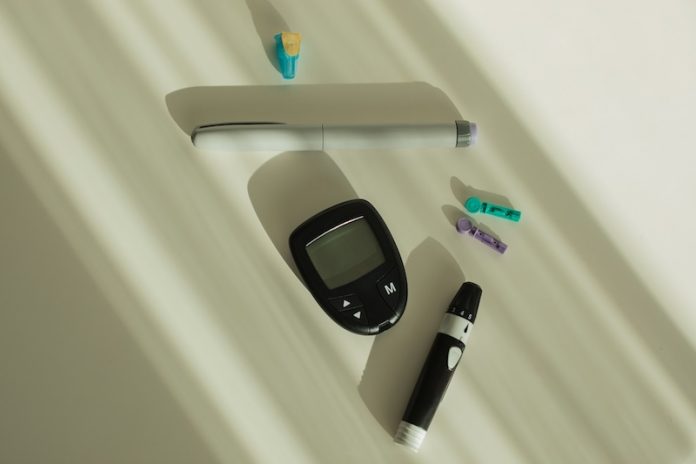
A recent study has found that people with type 1 diabetes have a lower risk of heart-related problems compared to those with type 2 diabetes.
The research, published in the Journal of the Society for Cardiovascular Angiography & Interventions, challenges previous assumptions and suggests that treatment approaches should be tailored to the differences between the two conditions.
Diabetes is a condition where the body struggles to control blood sugar levels, but type 1 and type 2 diabetes are very different diseases.
People with type 1 diabetes, often diagnosed in childhood, cannot produce insulin and need lifelong insulin therapy.
Type 2 diabetes, which is more common and usually develops later in life, occurs when the body becomes resistant to insulin.
Both conditions can increase the risk of heart disease, but this study found that the risk is not the same for both groups.
According to Dr. Andrew M. Goldsweig, a cardiovascular researcher at Baystate Medical Center, the results indicate that type 1 diabetes is associated with a much lower risk of heart disease compared to type 2 diabetes, even when factors like age, blood sugar control, and kidney function are taken into account.
“The study’s findings suggest that the cardiovascular risk associated with type 1 diabetes is lower than previously thought,” Dr. Goldsweig said. “This has important implications for how we manage these patients.”
The researchers analyzed data from the Veradigm Metabolic Registry, which includes medical records from 1.5 million people across more than 700 healthcare facilities in the U.S. Within this database, they identified nearly 6,000 people with type 1 diabetes and compared their rates of heart-related complications to those with type 2 diabetes.
The study specifically looked at the rates of:
- Heart attacks (myocardial infarctions, MI)
- Procedures to open blocked arteries (percutaneous coronary intervention, PCI)
- Strokes
- Poor blood flow to the limbs (limb ischemia)
After adjusting for various health factors, the researchers found that people with type 1 diabetes had significantly lower rates of these complications than those with type 2 diabetes. The only exception was coronary bypass surgery, where the rates were similar between both groups.
Dr. Bracha Goldsweig, a pediatric endocrinologist and co-author of the study, stressed the importance of distinguishing between the two types of diabetes when treating patients. “Type 1 and type 2 diabetes are fundamentally different diseases,” she said.
“People with type 1 diabetes do not produce insulin, while people with type 2 diabetes have insulin resistance. Our study shows that it is not appropriate to manage all people with diabetes identically.”
Because people with type 1 diabetes are now living normal lifespans, it is important to continue researching how best to manage their long-term health risks, including heart disease.
This study was also significant because it was the first time the two lead researchers, Drs. Andrew and Bracha Goldsweig—who are married—published a scientific paper together. Their collaboration highlights the importance of combining expertise from different medical fields to improve patient care.
“We were excited to work together in this area where our fields overlap,” Dr. Andrew Goldsweig said.
These findings could lead to changes in how doctors approach heart disease prevention in people with diabetes. Since type 1 diabetes carries a lower risk of cardiovascular events than type 2 diabetes, treatment guidelines may need to be adjusted to better reflect these differences.
Future research will be needed to explore why type 1 diabetes poses less risk to heart health and to develop more targeted treatment strategies for both groups. For now, this study provides reassurance that people with type 1 diabetes may not face as high a heart disease risk as previously believed.
If you care about diabetes, please read studies about the cooking connection between potatoes and diabetes, and low calorie diets may help reverse type 2 diabetes.
For more health information, please see recent studies about protein power: a new ally in diabetes management, and pineapple and diabetes: A sweet surprise.
The research findings can be found in Journal of the Society for Cardiovascular Angiography & Interventions.
Copyright © 2025 Knowridge Science Report. All rights reserved.



